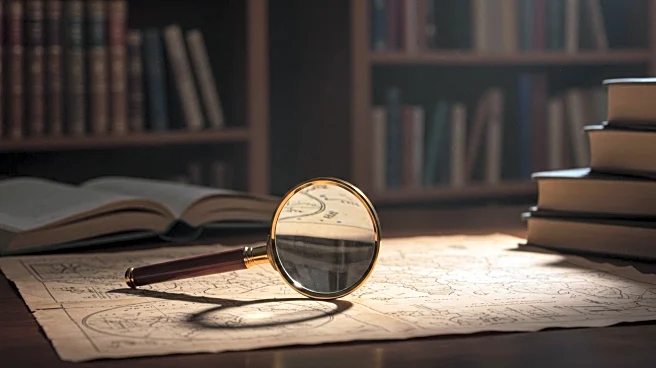What's Happening?
A recent study by Microsoft has sparked debate over the role of AI in historical research, suggesting that historians are unlikely to be replaced by AI anytime soon. The study ranked 'historian' as one of the jobs most likely to be augmented by AI, leading to concerns among historians. However, tests conducted with generative AI tools like ChatGPT and Copilot revealed significant inaccuracies in historical data retrieval, particularly regarding presidential movie-watching habits. The study highlights the limitations of AI in handling complex historical queries, emphasizing the need for human expertise in interpreting and verifying historical information.
Why It's Important?
The findings underscore the importance of human historians in preserving the accuracy and integrity of historical research. While AI can assist in data processing, it often struggles with nuanced historical contexts and specific queries. This has implications for the future of AI integration in academic and research fields, where human oversight remains crucial. The study serves as a reminder of the limitations of AI and the need for careful consideration of its role in historical scholarship.
What's Next?
The study may lead to further exploration of AI's capabilities and limitations in historical research, prompting discussions on how best to integrate AI tools with human expertise. It could also influence the development of more advanced AI models that better understand historical contexts. Historians and researchers may continue to advocate for the preservation of human roles in academia, ensuring that AI serves as a complement rather than a replacement.
Beyond the Headlines
The study raises broader questions about the ethical use of AI in research and the potential consequences of relying too heavily on automated systems. It highlights the need for transparency in AI algorithms and the importance of critical evaluation of AI-generated data. The findings may contribute to ongoing debates about the role of technology in shaping our understanding of history and the preservation of cultural heritage.









